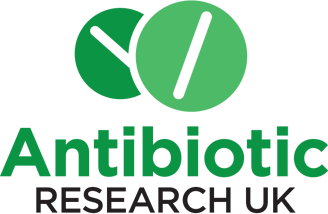Helen’s Story
I had my first encounter with multidrug resistant bacteria in 2013. I had a particularly nasty UTI and was prescribed three days of nitrofurantoin which didn’t work. My doctor then prescribed trimethoprim which had worked in the past but that didn’t work either. I was in a lot of pain and had missed numerous days at work. So, I went to the GP to ask for something “stronger” to beat the infection. I was desperate for something that worked. I couldn’t take penicillin due to a rash after taking it as a child. ‘Allergic to penicillin’ was already flagged on my medical notes.
My GP prescribed ciprofloxacin. Reading about the side effects in the patient information leaflet worried me. But, I knew I needed to get rid of the infection. During the night I had heart palpitations, felt sick and sweaty, had awful stomach cramps and felt a lot of pain in my knee. I felt that the antibiotic wasn’t agreeing with me so went to the walk-in centre at the local hospital. I submitted a urine sample and they told me to stop taking the ciprofloxacin. Instead, they prescribed a longer course of nitrofurantoin.
My knee pain continued, and it turned out that I’d probably developed tendonitis as a side effect of an antibiotic. I developed health anxiety as my symptoms weren’t going away. So, I was given medication for anxiety as well as more antibiotics. Subsequent UTI tests came back clear. However, I was told the infection had caused a lot of inflammation and had probably damaged the bladder wall so it might take a while to settle. It took me quite a while to recover both mentally and physically.
I then encountered multidrug resistant bacteria again in 2018 when I was pregnant. I tested positive for Group B Streptococcus. During labour, I was offered prophylactic intravenous antibiotics as these bacteria can cause illness in a newborn. My penicillin allergic status left me with few options. The alternative that was previously prescribed was no longer effective due to resistance. A different antibiotic was given and thankfully my baby was born healthy. We stayed in hospital for a couple of nights for observation but were both well. We left hospital as a new family of three, blissfully happy, exhausted and looking forward to our new lives as parents.
Unfortunately, I had a further encounter with multidrug resistant bacteria when the baby was six weeks old. I developed mastitis – an infection of the breast tissue resulting in pain, swelling, warmth and redness. I was reluctant to take antibiotics unless absolutely necessary but soon developed flu-type symptoms, extreme shivering and fever. An “out of hours” GP prescribed an oral antibiotic but two days later, I was still getting worse. I was in so much pain as it radiated across my chest and down my arm that I could barely hold my baby. I was still feverish and the lump in my breast was getting bigger, harder and redder and I started vomiting. The pain was actually worse than childbirth. My GP sent me straight to A&E, where I received IV fluids and an antibiotic straight away. I had developed sepsis from the infection, which had formed a huge abscess by then. They kept me in hospital for two nights and put on “heavy duty” intravenous antibiotics.
I was extremely lucky that they caught the sepsis relatively early and I started to feel much better the following day once I was on the right antibiotic. The hospital staff found me a private room on the gynae ward and let me keep my baby with me.
What impact did your experience have on you?
The issue of whether breastfeeding was safe while on these ‘heavy duty’ IV antibiotics was extremely confusing and stressful. In the end, as a worried new mum I did not feel safe to carry on. I also didn’t want to expose my baby to any more antibiotics. He already had bad colic and an upset stomach from an earlier antibiotic. On the second night, a nurse suggested I should send my baby home if not breastfeeding, as I was putting the baby at risk of infection in the hospital. This terrified me and I felt so guilty as my child went home with my husband.
With hindsight, I can see that the whole experience triggered post-birth anxiety. I became fixated on the side effects of the antibiotics if breastfeeding. I was also worried about becoming ill again and unable to take care of my baby, or the baby becoming ill because of me. I then underwent penicillin allergy testing at Addenbrookes in December 2018. They gave me a skin test and then a “challenge” dose of penicillin while observed closely. I was sent home with a short course to take, along with an antihistamine and steroids in case a reaction occurred. Happily, it transpired that I was either not allergic or had outgrown the penicillin allergy. This allergy note has now been removed from my record. It was such a fantastic Christmas present! I feel very relieved that I now have more antibiotic options available to me in future if required. But of course, I am acutely aware that resistance to penicillin is also a huge issue.
I am so grateful for antibiotics – they probably saved my life, just as they save millions of lives every day. However, we must remember that they do come with risks particularly when they are ceasing to become effective. Although my experiences have been unpleasant and took a toll on my mental health, ultimately, I have been very lucky that the treatments worked. We urgently need more antibiotic options and more treatment solutions, as there are far too many people who have had far worse experiences than mine and not been as fortunate to recover as I did.

